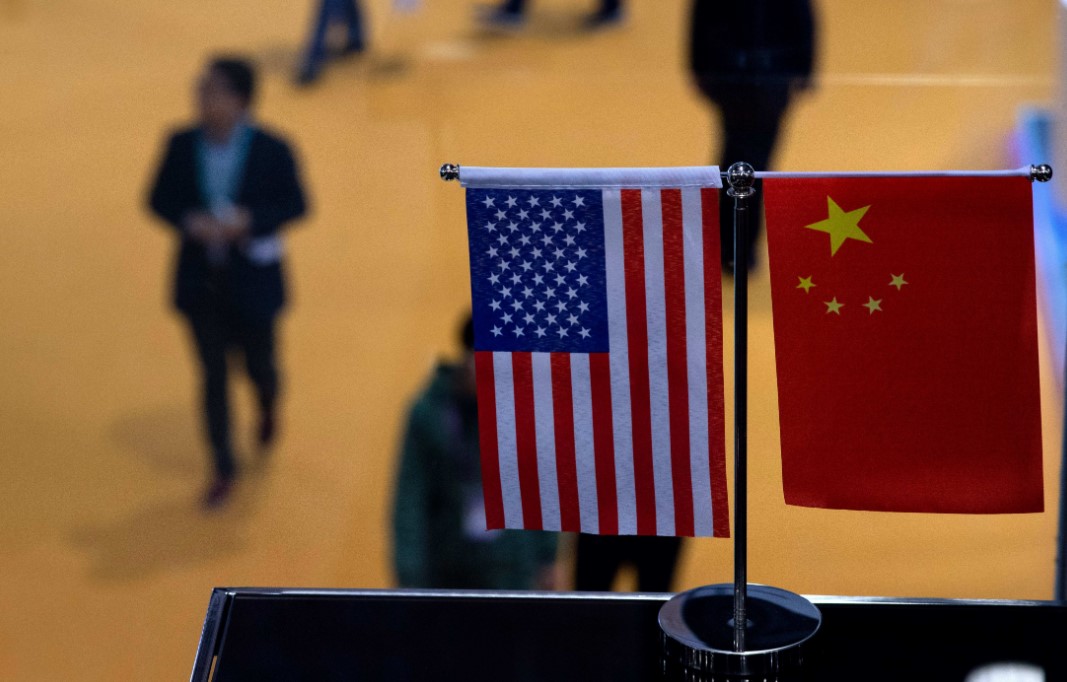
Stocks in Asia mostly rose by the close on Monday as investors await the signing of a phase-one trade deal between the U.S. and China.
Mainland China markets jumped by the close. The Shanghai composite rose 0.75% to close at 3,115.57, while the Shenzhen composite jumped 1.36% to 1,822.35. The Shenzhen component was up 1.47% to 11,040.20.
Hong Kong’s Hang Seng index also bounced and was up 1.11% in its final hour of trade. Tech stocks notched gains, with Sunny Optical rising 2.61% and Lenovo surging 3.20%. Gaming company Razer shot up almost 10% in the morning before paring gains to last rise 8.33%. It announced earlier this month that it had submitted an application for a digital banking license in Singapore.
In South Korea, the Kospi rose 1.04% to close at 2,229.26, with cosmetics stocks notching significant gains. Japan’s markets are closed for a holiday on Monday.
Australia’s S&P/ASX 200 bucked the trend, declining 0.37% to close at 6,903.70, with oil stocks seeing losses. Origin Energy declined 1.72%, Woodside Petroleum was down 1.20%, and Santos tumbled 0.56%. Oil Search was off by 1.89%.
But gold stocks in Australia rallied on Monday to erase last week’s losses after prices fell following declining U.S.-Iran escalation risks. Evolution Mining surged 2.79%, and Kingsgate Consolidated jumped 1.14%.
MSCI’s broadest index of Asia-Pacific shares outside Japan was up 0.69%, after hitting its highest since 2018 last week.
Taiwan’s benchmark Taiex index rose 0.74% to close at 12,113.42.
Taiwan President Tsai Ing-wen was reelected in a landslide victory over the weekend elections. She beat her main opponent Han Kuo-yu of the Kuomintang party — which favors close ties with China — by more than 2.6 million votes. That could fuel further tension with China, which has tried to get the island to accept its rule by way of threats and economic inducements.
Meanwhile, the Philippine Stock Exchange suspended trading on Monday after a volcano near Manila spewed huge amounts of ash and steam, forcing flight cancellations and shutdowns of schools and government offices, according to a Reuters report.
US-China phase one deal signing
This week Wednesday, U.S. President Donald Trump and Chinese officials are due to sign the long-awaited phase one trade deal between both countries, which have been embroiled in a long-running trade dispute. China’s Vice Premier Liu He, who leads the Chinese negotiation team in the trade talks, is set to visit Washington from today, the country’s commerce ministry said.
The deal will involve some tariff relief, increased Chinese purchases of U.S. agricultural goods and changes to intellectual property and technology rules. Meanwhile, Washington and Beijing have agreed to hold semiannual talks in targeting to resolve disputes and push for reforms, according to a report by the Wall Street Journal, citing sources.
“The key detail would be the timing of the expected rollback in tariffs,” said Han Tan, market analyst at FXTM. ”The lowering of these barriers to trade, sooner rather than later, should give the global economy more time to recover and provide cause for investors to add exposure to riskier assets, including those in emerging markets.”
The Chinese yuan jumped to a five-month high last week in anticipation of the signing. The currency continued strengthening on Monday to slip below the 6.90 level in the afternoon during Asia hours. The offshore yuan appreciated to 6.8989, from last week’s high of 6.9775. The onshore yuan was at 6.8996, as compared to a high of 6.9786 last week.
“The Chinese yuan is a potential ‘buy the rumour, sell the fact’ play on the signing of the Phase 1 trade deal on January 15,” wrote DBS analysts Philip Wee and Eugene Leow in a note on Monday.
Commenting on the Chinese yuan strengthening, they wrote: “But one should be wary about the exuberance as the US has reserved the right to reinstate or slap more tariffs if China does not meet the commitments of deal. More CNY appreciation will require a Phase 2 deal, which is unlikely to materialize before the US presidential elections in November.”
Currencies and oil
The U.S. dollar index, which tracks the greenback against a basket of its peers, was little changed on Monday, as it continued to hover above the 97 level. It was last at 97.371.
The safe-haven Japanese yen traded at 109.63 versus the greenback, weakening from last week. The Australian dollar was at around $0.6913, strengthening after sliding last week.
During Monday trading hours in Asia, oil prices inched up after last week’s declines. U.S. crude futures inched up 0.12% to $59.12 per barrel, and Brent crude traded flat to $65.00 per barrel.
























